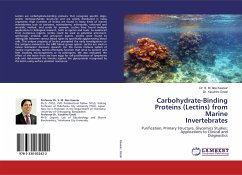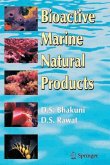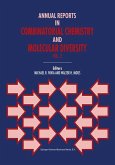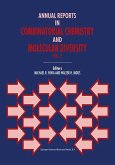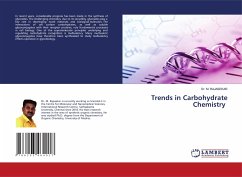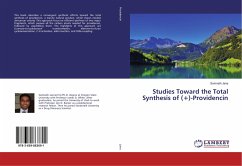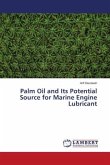Lectins are carbohydrate-binding proteins that recognize specific oligo- and/or monosaccharide structures and are widely distributed in many organisms. High numbers of lectins are found in many kinds of marine invertebrates such as tunicates, echinoderms, arthropods, echiuroid and annelids, mollusk, and corals for example. Lectins have found multiple applications in biological research, both as agents and tools. As evidenced from numerous reports, lectins could be used as potential anti-insect, antifungal, antiviral, and anticancer agents. Lectins were found to distinguish between various blood types by specifically agglutinating blood cells. This unique property of lectins prompted the early investigations on the antigens involved in the ABO blood group system. Lectins are used in cancer biomarker discovery research. For the innate immune system of marine invertebrates, lectins effectively function that serve to prevent and limit invading microorganisms or its pathogens. We alsoevaluated the effect of the lectin from sea hare eggs for cell proliferation of lymphoma cells and determined the kinetics against the glycoprotein recognized by the lectin using surface plasmon resonance.
Bitte wählen Sie Ihr Anliegen aus.
Rechnungen
Retourenschein anfordern
Bestellstatus
Storno

